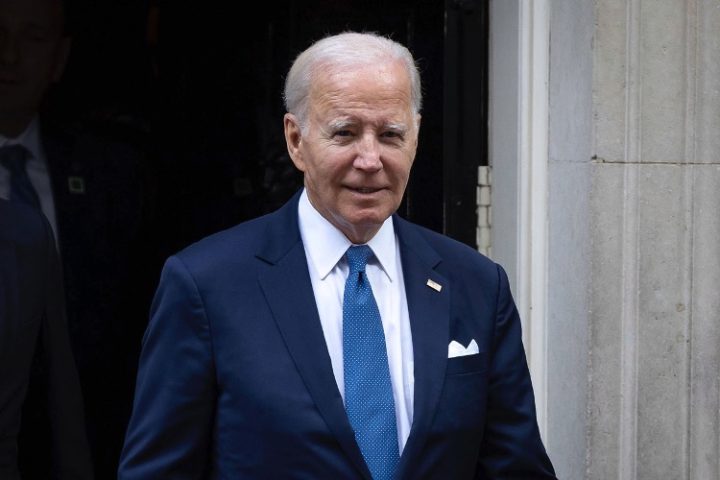
After weeks of saying that his administration lacked the constitutional and legal authority to extend the eviction moratorium, the current resident of 1600 Pennsylvania Avenue switched gears and extended it anyway. He also admitted that the extended moratorium is “not likely to pass constitutional muster” but that his plan is to run out the judicial clock to “give some additional time while we’re getting that $45 billion dollars out to people who are in fact behind on the rent and don’t have the money.”
Elected officials — including presidents — swear an oath to uphold the U.S. Constitution. And while it is easy to become jaded and expect politicians to break campaign promises, it is another thing altogether to have them violate their oath of office, much less to openly admit to doing so. But on Tuesday, that is exactly what Biden did — he simply admitted that he is extending the moratorium for 60 days knowing that by the time the Supreme Court can act, the extension will have expired and his administration will have sent out the money to cover all those months of unpaid rent.
Biden announced Tuesday that the CDC would extend the eviction moratorium in the areas of the country that have the highest cases of COVID. Those areas make up 80 percent of the counties in the United States and account for 90 percent of the population. After making the announcement, Biden admitted — without blushing — that “the bulk of the constitutional scholars say it’s not likely to pass constitutional muster.” He went onto say, “But, at a minimum, by the time it gets litigated, it will probably give some additional time while we’re getting that $45 billion out to people who are, in fact, behind in the rent and don’t have the money.”
And to put in the for-what-it’s-worth column, Biden was correct when — before doing it anyway — he said that the executive branch lacked the legal and constitutional authority to extend the moratorium. Because in May, Judge Dabney Friedrich of the U.S. District Court for the District of Columbia ruled that the eviction moratorium was unlawful, saying it was beyond the scope of the CDC’s authority. Biden’s DOJ appealed and the judge stayed her ruling pending the outcome of the appeal. Then in June, the Supreme Court ruled 5-4 to allow the CDC to continue its moratorium until July 31, but said that it must end then, unless Congress enacted legislation to extend it.
Congress did not act, and less than 24 hours after saying that it was out of his hands and beyond his authority, Biden made a few minor tweaks to the moratorium and extended it anyway.
After Biden admitted that he is extending the moratorium knowing that “the bulk of the constitutional scholars say it’s not likely to pass constitutional muster,” and that his plan is to run out the judicial clock since “by the time it gets litigated, it will probably give some additional time” for the administration to get “that $45 billion out to people who are, in fact, behind in the rent and don’t have the money,” White House Press Secretary Jen Psaki was asked in a press briefing about her boss deliberately pursuing a constitutionally dubious course of action. She dismissed the question while denying that Biden would do such a thing, though he plainly said that is what he is doing.
“You know I’m going to ask you who’s saying that,” Psaki said, adding, “I think what’s important to note here is that the president would not have moved forward with a step where he didn’t feel comfortable and confident in the legal justification.” She went on to say, “But he asked the CDC and his legal experts to look at what is possible. This is a narrow, targeted moratorium that is different from the national moratorium. It’s not an extension of that,” she added.
To say that this is a wholly different moratorium is a denial of an obvious fact. If the text of the moratorium that the Supreme Court ruled against was a copyrighted song and someone else recorded this new moratorium as an original work, they would certainly lose any lawsuit for copyright infringement. With the exception of a few minor changes, they are the exact same thing.
And Psaki’s claim — which is just a regurgitation of the claim made by anyone in the Biden administration who has addressed this — that this is “a narrow, targeted moratorium” is demonstrably false. There is nothing “narrow” or “targeted” about a blanket that covers 80 percent of counties and 90 percent of the population.
It appears that this is all a ploy on Biden’s part to force Congress to act. Because Psaki also said, “We don’t control the courts, we don’t know what they will do, we are all aware of the Supreme Court decision at the end of June and what was outlined in their decision at the end of June — this is also going to be a temporary solution regardless, and longer term solutions will require legislative action.”
Meanwhile, 90 percent of landlords whose tenants are not paying rent — even while either still working or receiving assistance from federal, state, and local government programs or from private civic charities — cannot reclaim their properties. They must continue to pay those mortgages, pay property taxes, and maintain those properties. Many of them will lose much, if not everything, that they have spent years trying to build.




